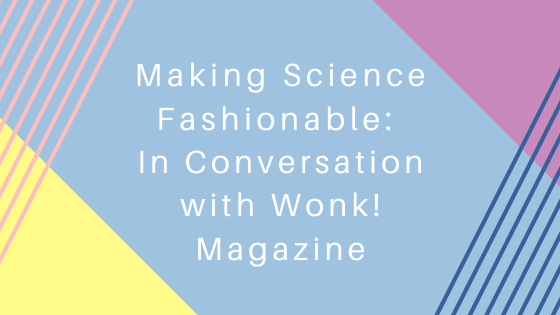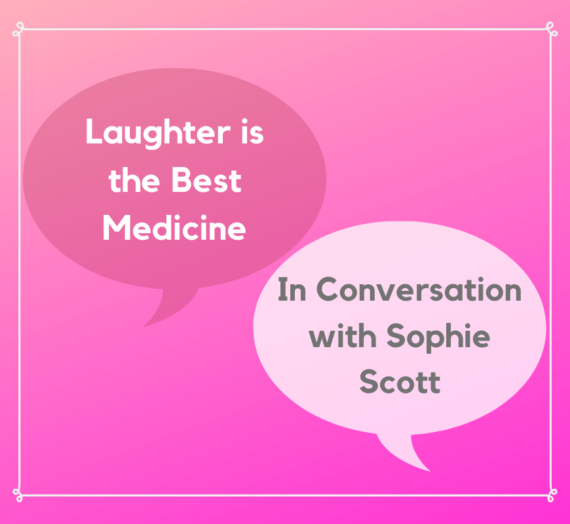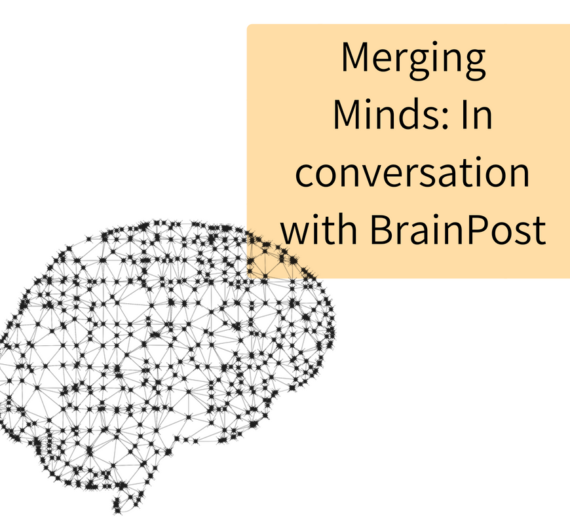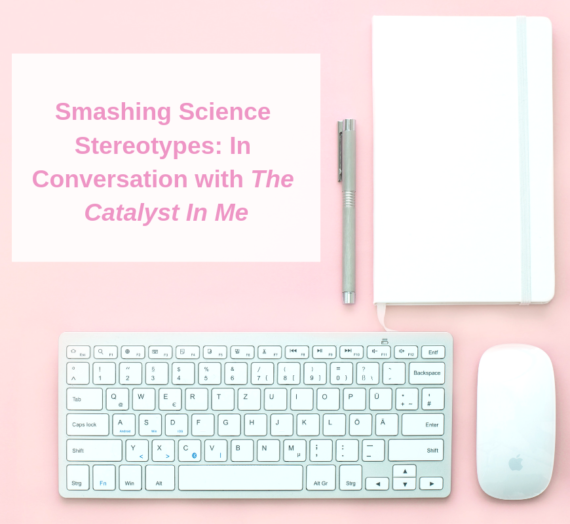We’re very excited to have been able to chat with Hannah Needham, founder and Cheif Editor of Wonk! Magazine, a magazine aiming to “keep brains in fashion” and engage teenagers with science in fresh and innovative ways! Why not take a break from all the COVID-19 news and have a read through our Q&A with her below!
- Firstly, can you give us an overview of your background and how you became interested in science communication?

Strangely enough, I was interested in science communication before I even knew it existed. At school, I was my interests were always equally split between English Language and Science. When it came to choosing what I wanted to read at university, I decided that science would open more doors for me and enrolled in Forensic and Applied Biology at the University of Worcester. During this time, I found that I was really interested in expressing forensic science to laymen in court. From there, I started up a science blog that I loved writing and realised that science writing was something I really wanted to pursue as a career.
I now have a First class BSc and I have managed to bring my love of English Language back into my life through science communication!
- What inspired you to start Wonk! Magazine?
For a long time before starting Wonk!, I had noticed that there was a concerning lack of publications encouraging teenage science engagement. There was plenty of material aimed at children and adults, but nothing in between. I really wanted to change this and help teens engage with science in an interesting way. I was on a long car journey when I came up with the idea of blending the concepts of a typical teen magazine with a science magazine. By doing this, I hoped that it would make for an educational replacement for magazines that are generally filled with gossip and negative influential values.

- What is the main mission of Wonk! Magazine?
Our main focus is to increase science engagement in teenagers and break down the scientist stereotype that puts many people off studying science. By putting science into a pop culture context, it makes it much more relatable and interesting whilst breaking down the lab walls and unleashing science in the real world.
- How did you grow the magazine from an idea to a real publication? What has been the most challenging aspect of the process?
As soon as the idea was born, I was very keen to get stuck in. Everything about it excited me and I had so many ideas buzzing through my head! We started off at the foundations and made sure we had a solid brand to build the empire on. Following that it was the website and blog posts to start giving a taster of what sort of content the magazine would have and build up an online readership. Once we felt ready, we started outlining the first issue and got writing and designing.
We’re now on our 5th issue, and have managed to build a great community of readers and have made it onto the shelves! Overall the process has been really fun and exciting, but I would say the most challenging part has been learning the tricks of the trade. My main interest is thinking up and writing articles, however, everything else surrounding it like marketing and publishing aren’t my expertise. It has been a big learning curve, but I do find it exciting being pushed out of my comfort zone and trying new things.
- Wonk! provides a unique combination of science and other topics such as fashion and beauty – do you think approaches like these are more useful at promoting STEM to young people, rather than simply talking about science alone?

I’ve always thought that teenagers are a tricky audience to capture, which is why a lot of people tend to avoid the territory. One thing that I really stand by is that you can’t force teenagers to be interested in something and the more you try to force it, the more they resist. I think that the approach we take latches onto their current interests and uses it as a hook to get them subconsciously reading about science or viewing it in a different light.
On the flip side, it also allows teenagers, who are already really interested in science, to read about the topic they love as well as the topics that their peers at school are talking about. This helps to break down any social barriers that may exist between scientists and everyone else.
- What is the most rewarding thing about running Wonk! Magazine?
I think my favourite thing is when I hear the positive things people have to say about the magazine. It gives me a real sense of pride to know that something I put a huge amount of time into is having a positive impact on readers and influencing their future career plans.
We even have quite a lot of adult readers who say that they wish Wonk! was around when they were teenagers because it portrays science in such an interesting light and is completely different from the classroom. This really excites me because it makes me feel as though it’s giving this generation of teenagers a chance to find a new interest that they might not have found otherwise.
- What do you hope that your readers take away from Wonk! Magazine?
To be honest, I hope they take away whatever they want. I’d like to think that there is a range of reactions, some people might read it and continue with their life, while others may unlock an interest and start pursuing a completely new career path. I love that we have such a variety of readers who all read for different purposes. To me, that’s really important in making STEM accessible- we aren’t forcing science careers on everyone but making them more aware of the world and encouraging them to question the things around them.
- What does the future hold for Wonk! Magazine?
The sky is the limit. I think our approach is something that could have very valuable applications across many aspects of life. My hope is that the magazine is just the start. I have very exciting ideas for events, teaching material, books and courses which I am currently exploring on the side so that when the time comes they will be ready for action! Stay tuned.
You can subscribe to Wonk Magazine here, and make sure to follow them on Twitter and Instagram




